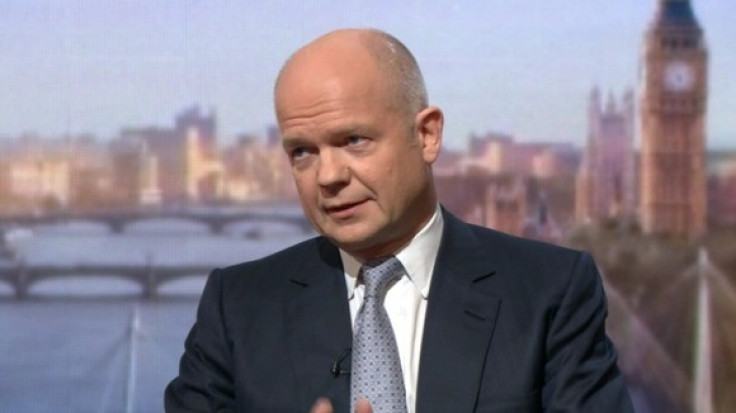Claims that GCHQ Spies on Brits Are 'Fanciful Nonsense': William Hague

UK Foreign Secretary William Hague has refused to confirm or deny claims that the UK's eavesdropping centre GCHQ used a US spy programme to gather intelligence on British citizens.
Hague dismissed as "nonsense" allegations that GCHQ had bypassed the law to gather data on British citizens. He confirmed he would give a statement to Parliament on the allegations on Monday 10 June.
Hague declined to say whether he had authorised GCHQ to engage with the US internet monitoring programme Prism.
"What people need to know is intelligence-gathering in this country by the UK is governed by a very strong legal framework so that we get the balance right between the liberties and privacy of people and the security of the country," Hague said.
"That provides not for trawling through the contents of people's phone calls. It provides for intelligence gathering that is authorised, necessary, proportionate and targeted on what we really need to know."
Hague said "law-abiding" citizens had "nothing to fear" from the intelligence services, adding that GCHQ's operations were subject to stringent legal checks.
"The net effect is that if you are a law-abiding citizen of this country going about your business and personal life, you have nothing to fear about the British state or intelligence agencies listening to the content of your phone calls or anything like that," he said.
"Indeed you will never be aware of all the things that these agencies are doing to stop your identity being stolen or to stop a terrorist blowing you up tomorrow.
"But if you are a would-be terrorist or the centre of a criminal network or a foreign intelligence agency trying to spy on Britain you should be worried because that is what we work on and we are, on the whole, quite good at it."
The government is accused of allowing GCHQ to access the Prism system to circumvent the law on obtaining personal material such as emails, photographs and videos, from internet companies based outside the UK.
Hague, who is the minister responsible for GCHQ, said he could not reveal the workings of GCHQ or the security services as to do so would help terrorist networks, criminal networks, and foreign intelligence agencies.
"If actually we could tell the whole world, or the whole country, how we do this business, I think people would be enormously reassured by it and they would see that the law-abiding citizen has nothing to be worried about," he told the BBC.
"But if we did that, it would defeat the object. This is secret work. It is secret for a reason."
Hague said it was "fanciful ... nonsense" to suggest that GCHQ would work with an agency in another country to bypass the law.
But he indicated that he may have authorised GCHQ's use of the Prism system, though only on a limited scale.
He said the law allowed "targeted" monitoring of terrorists, criminal networks and hostile foreign intelligence agencies.
David Davis, the former shadow home secretary, and Keith Vaz, chairman of the Commons home affairs select committee, have raised serious concerns about the GCHQ disclosures.
Documents obtained by a national newspaper last week suggested GCHQ had generated 197 intelligence reports from Prism last year, circumventing legal processes to access personal material, such as emails and photos, from internet giants.
Hague said GCHQ always acted within the law in monitoring internet traffic.
He said the UK had an "exceptional intelligence sharing relationship" with the US, but that information sent to Britain by US authorities was subject to UK law.
© Copyright IBTimes 2024. All rights reserved.





